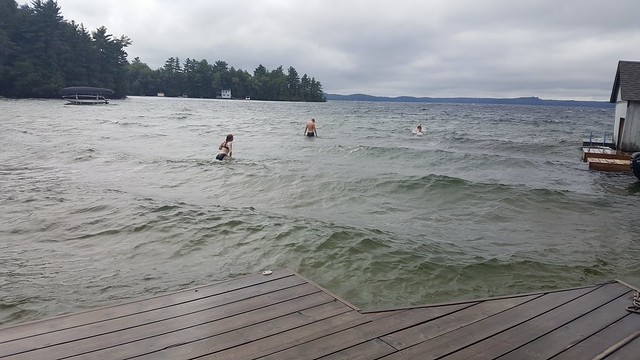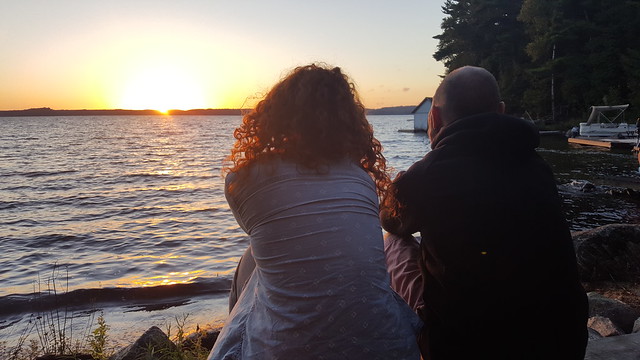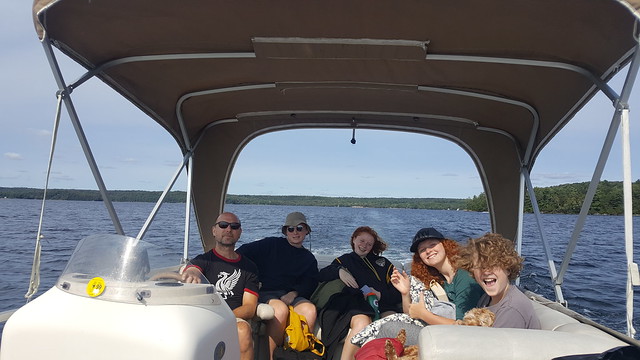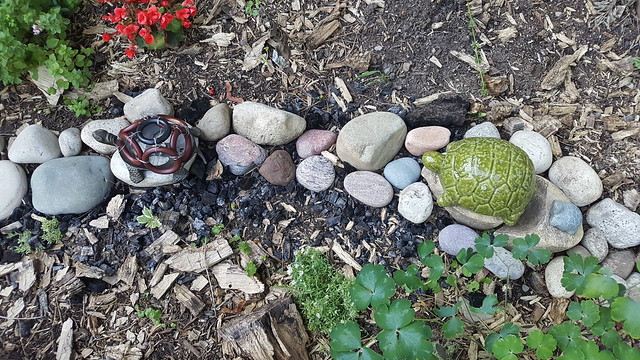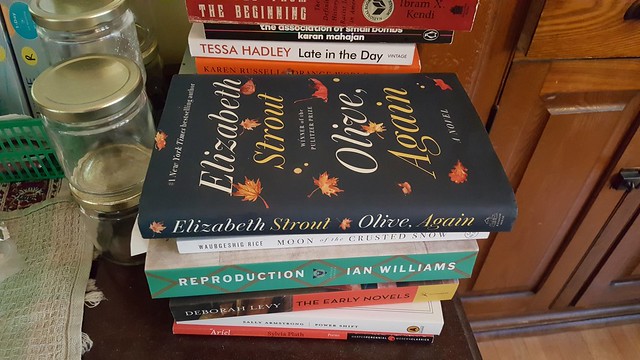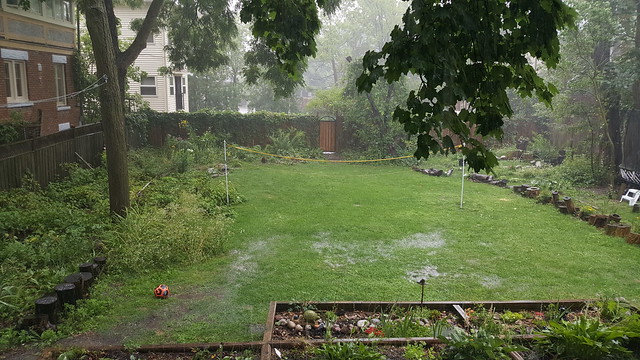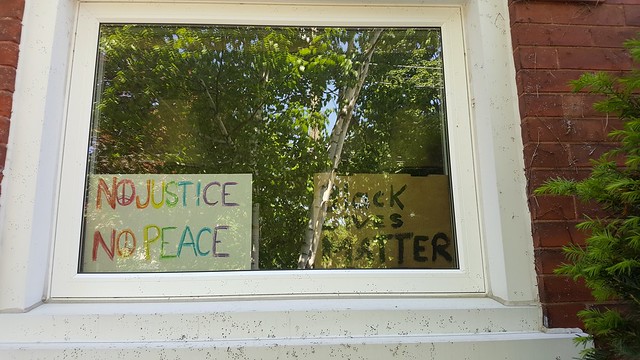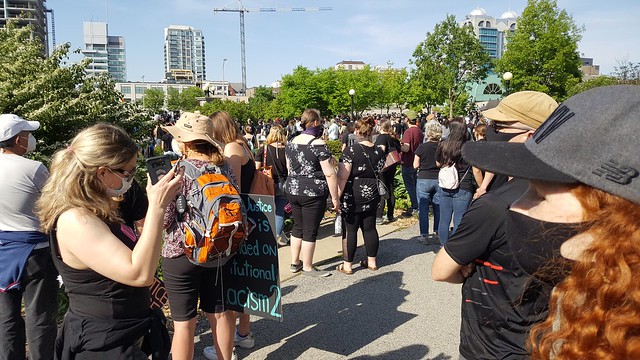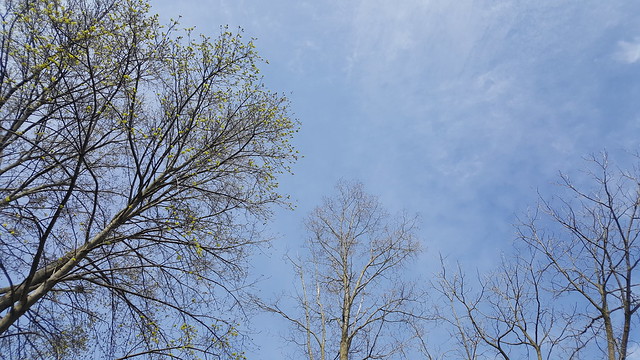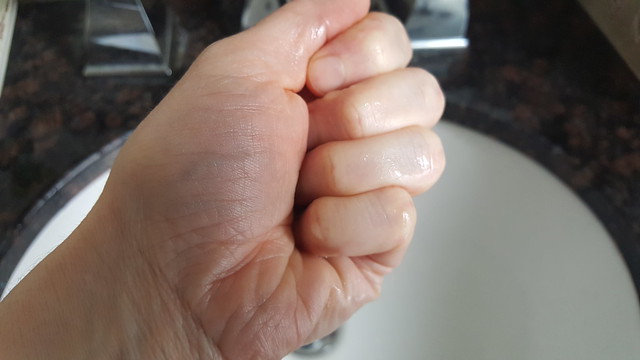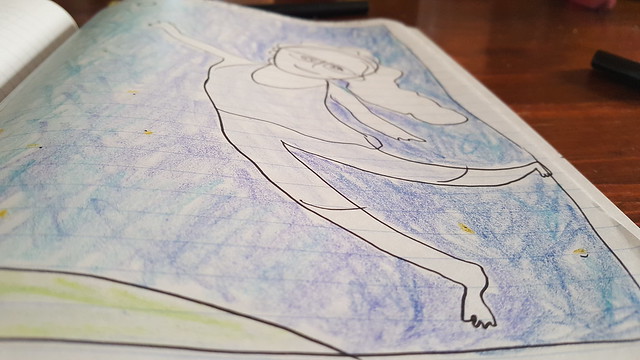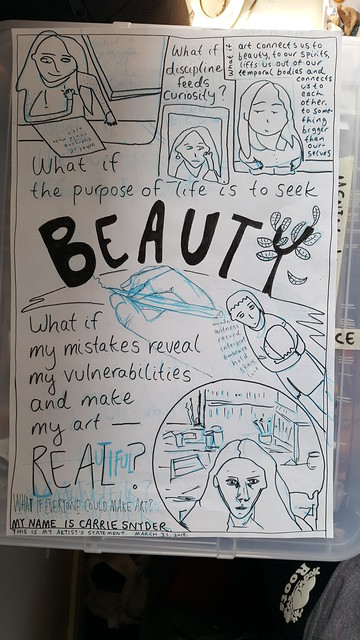Category: Stand
Tuesday, Sep 8, 2020 | Big Thoughts, Confessions, Current events, Family, Feminism, Holidays, Manifest, Meditation, Peace, Spirit, Stand, Success, Summer, Yoga |

Two weeks is a long luxurious span of time to be on holiday, especially right now, especially when one’s holiday is basically a two-week quarantine away from other people and the world and news and thoughts of the future; it’s all a beautiful, slow-moving present; now, now, now.
We’re back home, but I’m holding onto my holiday brain for as long as I possibly can.

This is what I learned on holiday: Notice. Notice what I’m doing or about to do. Notice what effect it has on others around me. Notice what I like and don’t like about the things I’m doing and saying, and their effect. Do I want to change those things? Can I? (Don’t know. Maybe!) But it all starts by noticing. And then deciding what to do next.
As one of my kids told me: I think you have to want to change, Mom.
Yes. That is true.

On holiday, as an experiment, I sometimes did the opposite of what my first response would have been. I had the time. I noticed how I wanted to respond before I responded, and then if I didn’t want to respond that way, I paused myself and tried to respond differently, just to see what would happen. This was on a very small scale. For example, Annie and Kevin and I did yoga twice a day on the dock and one fine afternoon, I noticed that I wanted to announce to them—during tree pose—that I was wearing very slippery pants, and the pants were the reason I couldn’t place my foot up high on my opposite leg—I wanted to explain: hey guys, it’s not me, it’s my pants! But instead, I noticed that I wanted to do this before I did it. I noticed, too, that to speak would be to spoil this moment of shared concentration. I noticed that what I wanted to share was a) information not useful to them, and b) information that, if shared, wouldn’t actually solve anything. Any insecurity, any fear of failure, was mine; unrelated to what they were doing, and certainly not theirs to fix.

So I bit my tongue. I just did the pose. Obviously, this was a very tiny moment of noticing and making a very tiny decision, but I remembered it afterward, clearly, because I’m writing about it from memory now. What I noticed was that it didn’t hurt at all to stay quiet. It just shifted the moment, and my experience of the moment. It reminded me why I was doing yoga—as a gift to my body and mind, as a way of loving myself, respecting my body, no matter what it was/is capable of doing. It reminded me to thank my body for holding me up, no matter what the position.
It reminded to say: Thank you, body, for bringing me into this moment!

Notice, notice, notice. It’s why I meditate. I have to want to change if change is going to happen. But I also have to notice what I’m doing in the first place. So much of what we do, think, say is almost automatic. We’ve fit ourselves into systems, we’ve figured out how to survive, how to take the easiest route to self-soothing, how to comfort ourselves, how to minimize conflict (or ramp it up, if that’s what makes us feel alive/better). Our responses are formed by long experience, often dysfunctional, or harmful to our bodies and minds. Changing deep patterns takes patience, trial and error. Takes forgiveness and generosity above all else—to the self, which will extend then so easily to others too. If you can forgive yourself for your flaws and weaknesses it will be easy to forgive the flaws and weaknesses in others.

Insecurity, fear, the desire to be liked, the need to win and prove myself; these are among my deepest flaws. And I do want to change the way I respond when in their thrall. The only hope is to notice.

One more thing I learned on holiday (or learned anew, again): To notice when others are doing and saying things that make me feel good, cherished, calmer, more generous-minded—so I can learn from their deeds and words, and also be appreciative. For example, I’m so thankful that my children are kind and hopeful people, who are rolling with their changed circumstances, accepting what they’ve got and actively making the best of it, adapting, not complaining or mourning any perceived losses, just getting on with what’s being offered to them. I watch them, I notice, and I follow their lead.
xo, Carrie
Sunday, Aug 16, 2020 | Art, Big Thoughts, Blogging, Book Review, Books, Confessions, Current events, Dream, Family, Manifest, Peace, Play, Politics, Publishing, Reading, Spirit, Stand, Work, Writing |

This blog is like a corkboard on which to post thoughts, observations, whatever is front-of-mind right now. It acts as a public journal, an I WAS HERE scrawl on the wall. Trouble is, recently, whenever I sit down to post something, it’s not clear to me what’s front-of-mind. Mind is a-jumble. Influences are disparate and scrolling, images aflame, voices shouting, protests, outrage. What calls my attention is both very personal and tiny (my morning routine, for example) and overwhelmingly political and heavy (can’t even begin to list it parenthetically).
This morning I read an article by Lori Fox in The Globe and Mail that pretty much sums up what I’ve been ranting to Kevin about for these past many months. Please read what she’s written and know that I’m nodding along. At one point in the article, she writes about her own “small, selfish” dream. It’s a lovely dream. To paraphrase: Work that is useful and that she loves doing. Enough, and the time to enjoy it. A life with dignity and love.
It’s small enough, isn’t it, that everyone should dare to dream such a dream? Everyone should have the means of achieving it? It doesn’t sound selfish to me.

Originally, when I sat down to write this post it was about my own lovely week, which I spent reading stories, editing stories, and talking about stories. But when I wrote about how lovely it was, and how purposeful and peaceful I felt doing this work (tiny, personal), I also found myself tracking into the weeds of dismay and guilt, confusion and fury (overwhelming, political) as I reflected on how it was privilege that allowed me to do this work.
Earlier in the week, I watched this interview with Kurt Anderson on PBS (my favourite American news source), and it stirred in me emotions that I’ve been unable to unstir. Essentially, he argues that 1976 was the most equitable year on record (in America), and due to a wealth-driven philosophy that focuses on profit to the exclusion of all other concerns, we now find ourselves living in an economy that offers that “small, selfish” dream to fewer and fewer people. I realize that I live in Canada, not the US, but we’re not immune to troubling inequity. When I eat a peach, I can’t help but think of the hand that picked it, and wonder where that person is from, how much they’re being paid, and where they’re sleeping. Essential work is being done by people who are treated as less-than. And the system makes us complicit, even as we’re stuck in it.
How many people do you know whose work is precarious, cobbled-together gig by gig, without benefits or retirement packages? Look around, and you’ll see that defines a lot of us, even those who seem to be doing okay. How many jobs that were once secure and well-paid are now being done by people who work on contract or freelance? Remember when earning a PhD meant tenure-track job-security? I remember when writers were paid a dollar/word for book reviews published in the newspaper. You can argue that sectors that are struggling are sectors that are becoming obsolete in today’s economy; but that’s not necessarily true. Is education obsolete? Are the arts obsolete? What about news? Long-term care? Sectors struggle for many reasons, but what I see is that a profit-only model doesn’t work for the people who actually do the labour. Because in the profit-only model, labour is a cost. You squeeze the costs down, you make more profit. Ultimately, that means you’re squeezing people — you’re paying people less and less to do more and more. And the people are us.
I can observe all of this, and be outraged, but it tends to lead me toward paralysis. What’s the fix, what’s the cure?

Yesterday, I sat outside and read Olive, Again, by Elizabeth Strout, which I noticed, upon finishing, is labelled “A Novel.” I think that’s an American thing? The book is actually a collection of linked short stories, my favourite form, although I know linked short stories don’t sell well, so maybe “A Novel” is a marketing thing. In any case, the book doesn’t need to be anything other than what it is: stories about characters (often Olive, but sometimes not) navigating their broken paths and trying to figure out how to talk to each other and protect themselves across divides of class, race, culture, age, abuse, pain, illness, secrecy, experience, self-doubt. It’s brilliant, and I wept often, throughout.
Upon finishing, I thought: I just want to sit and read stories all day long. And then I’ll take a break and write stories for others to read. And then I’ll meet with people who love reading and writing and we’ll talk about it, and I’ll edit my stories and theirs. When I do this work I’m not always right, but I know what I’m doing and why.
Is this a roadmap for a career???? God, let it be so. At the very least, it’s a roadmap for making sense of life. For helping me see and understand and know what matters. And it ain’t profit, my friends (but you already know that!). We all know it, gut-deep: profit isn’t profitable when it costs us our communities, our health, our dignity.

Here’s my own small, selfish dream: I want to read, write, edit, discuss; work that has it uses, its purpose. And I want others to be able to do this work too, as they’re called to it.
Truth: A lot of my work is done on a voluntary basis (it’s my speciality!). But here’s the thing: volunteer work is not necessarily noble. People volunteer because they can afford to. I’m worried that my willingness and ability to work for little to no recompense is part of the problem. Consider the arts sector, where many initiatives survive because of people like me: Doesn’t this very structure — reliance on voluntary labour — create barriers toward participation for everyone who can’t afford to work for free?
But what’s the alternative in a sector that’s not profit-driven and never will be, that survives on grants, fundraising … and underpaid / unpaid labour?
It’s a dilemma that’s been troubling me. A lot.
And I’ve come around to a solution, of sorts: Universal Basic Income. It’s not perfect, but it seems like the viable place to start. A baseline of security, so everyone can afford their own tiny, personal dream: Enough and time to enjoy it. Dignity and love. Work that is useful and that you love doing.
(See what I mean? This post is WAY TOO MUCH, but it’s where my head is at, right now.)
xo, Carrie
Thursday, Jun 4, 2020 | Confessions, Current events, Manifest, Politics, Stand |

Today, I’m researching power structures in late-Elizabethan England, but I’m thinking about power-structures in 2020 North America, and especially, I’m thinking about self-expression. The freedom to think and express what is on your mind. The freedom to be yourself. What does that even mean? I think we’re getting a glimpse into what that means to people of colour living in white supremacist systems; and for those of us who have had the privilege of expressing ourselves freely no matter the circumstances (by and large), it’s a wake up call. I’ve been watching Amber Ruffin’s stories of her encounters with police, on Seth Meyer’s show this week. I want to shout: I can’t stand this! It’s not fair!
It’s not fair! Why did I think things had changed? I think I wanted to believe that in some way, we could all live as equals, especially here in Canada. Easy for me to think. I have white skin. So do my kids. I have never, not once, had an encounter with police where I thought: I might die. Listen to Amber’s stories. What struck me about the one I heard today, which I’ll try to embed below, is how the situation forced her to comply, even to agree with the cop who was threatening Amber on her own front porch—she had to agree, to comply, because it was the only safe thing to do. She couldn’t say: lady, you are lying. She had to swallow the lie.
Freedom of expression: erased. The ability to say what she was thinking: erased.
I get that as individuals we “police” ourselves all the time, we decide what’s safe to say or not say given the circumstances, and that there are legitimate reasons to self-censor, including to be polite, or not to hurt others. I get that. But this isn’t the same. It’s always chilled me to think about what happens to artists in countries where everyone is expected to think the same—or to pretend to. I’ve tried to imagine what I would do if I could not write freely. If every word I placed on the page had to be weighed, or coded, if I was forever compromising the truth of my own experience, hiding it from view. How would it change me? How would I survive self-negation? Well, guess what, Carrie, this is happening right now all around you. You just haven’t wanted to see it.
To be told who you are by someone else: happening now.
To be constrained by pre-judgement: happening now.
To alter your behaviour so as to survive: happening now.
I’m gonna quote Scott Woods’ blog post, titled “5 Things No One is Actually Saying about Ani Di Franco and Plantations,” written in 2014, which has been making the rounds, because he says all of this, and much more, much better than I can:
“The problem is that white people see racism as conscious hate, when racism is bigger than that. Racism is a complex system of social and political levers and pulleys set up generations ago to continue working on the behalf of whites at other people’s expense, whether whites know/like it or not. …
Here’s the deal with racism:
Racism is an insidious cultural disease. It is so insidious that it doesn’t care if you are a white person who likes black people; it’s still going to find a way to infect how you deal with people who don’t look like you. Yes, racism looks like hate, but hate is just one manifestation. Privilege is another. Access is another. Ignorance is another. Apathy is another. And so on. So while I agree with people who say no one is born racist, it remains a powerful system that we’re immediately born into. It’s like being born into air: you take it in as soon as you breathe. It’s not a cold that you can get over. There is no anti-racist certification class. It’s a set of socioeconomic traps and cultural values that are fired up every time we interact with the world. It is a thing you have to keep scooping out of the boat of your life to keep from drowning in it. I know it’s hard work, but it’s the price you pay for owning everything.”
We are living in a moment. It is a very particular moment. It’s not the same moment we thought we were living in, scarcely a week ago. Now it is another moment, replete with other images, some combined with where we were and still are (masks), and some brand new (protestors).

I decided, this week, to attend the protest organized by Black Lives Matters in my home community. I did so even though I’ve been faithfully quarantining and have scarcely left the house for the almost three months. (Yes, I wore a mask and so did almost everyone in attendance.) In Scott Woods’ list of the manifestations of racism, I see myself. I see my privilege, my access, my blindness, my errors. I know that I stick my foot in my mouth time and again due to my ignorance and that others have been generous enough to forgive me for this. I don’t claim to understand beyond my own life experience, despite living a life of imagination. I do not understand. But I can’t stand living like this—in ignorance, in a place where others living next to me are not free to move, speak, be, because of the colour of their skin. I refuse apathy.
When Trump held up the Bible, I recoiled. I’m Mennonite, and even though I have my own arguments with the Bible, the image looked utterly blasphemous to me. I thought: his understanding of the Bible is so superficial, he thinks it’s just a prop, used to intimidate, to confer power, to rally to violence. Oh, and he is right, because it has been used like that, and for that.
But for many of us, our relationship with the Bible is much more complex. Conflicted, maybe, yes, but we also know it as a comfort, with words that connect us with others who are seeking truth, who are suffering, struggling, who know Jesus as a shit-disturber, someone who sought to turn the power structure upside down, a healer who invited tax collectors and women to join the circle, who asked his followers to give everything away and come with him. Give everything away! I don’t think Trump has read that part.
But the truth is, even though I have, I haven’t given much away, let alone everything. I’ve sacrificed almost nothing, really. I’ve been assuming that goodwill and kindness would be enough to bring everyone along on equal terms, and holy shit, that is nowhere near enough. So I ask myself: What am I willing to give away? What am I willing to sacrifice, to challenge, to dismantle, to disrupt, am I willing to feel discomfort and get over myself, and get out of the way?
Discomfort. I think that’s step number one for me, and dammit, isn’t that a doable ask? Lord, grant me the humility to get comfortable feeling discomfort. Being challenged. Admitting when I’m wrong. Although the truth is, step number one has been GRIEF and RAGE.
Because this can’t go on. There’s too much at stake.
xo, Carrie
Tuesday, May 5, 2020 | Art, Current events, Fire, Good News, Manifest, Money, Organizing, Politics, Publishing, Spirit, Stand, The X Page |

Starting today, new stories from the 2020 X Page Workshop are being published daily by The New Quarterly. Below, is our theatre director’s introduction to the online series.
Today’s story, which would have been the opening performance onstage, is called “Pant Rant.” I remember hearing the first draft of “Pant Rant” being read during a small-group workshop and being totally blown away; afterward, we all sat in silence, rocked by the rhythm and depth of the raw words. “Pant Rant” is a gritty, rich and poetical examination of mental toughness in defiance of persistent indignities endured for the sake of survival. At least, that’s how I read it. I wish you could hear Xiao tell her story in her own voice; instead, it’s her gift to us on the page. I find this story especially resonant as I think about the people who are working in dangerous conditions, physically and emotionally, in places like meat-packing plants and long-term care homes, performing difficult tasks that the rest of us prefer not to think much about.
You can read “Pant Rant” here.
I look forward to highlighting more stories in the days and weeks to come.
Thank you for reading, and for your support of The X Page project.
xo, Carrie
Tuesday, Apr 7, 2020 | Big Thoughts, Chores, Confessions, Family, House, Manifest, Meditation, Peace, Sick, Space, Spirit, Stand, Writing |

This photo is completely unrelated to this post, and purely for your amusement (or, if you don’t much like dogs in glasses, mine).
This morning, sitting cross-legged and meditating in my friend Kasia’s virtual-yet-live yoga class, my head was quiet with deep and peaceful thoughts. Hours later, though I scribbled a cue for myself in my notebook, the same head seems to be noisy with surface natter.
We’ve entered our fourth week in lockdown, or whatever this is called.
There are times, like during this morning’s meditation, when I feel grounded and calm. But I think my family would likely point to all the times I’ve appeared wild-eyed or grim, or perhaps both in delightful combination.
I’ve been thinking about how I’ve always intended to improve as life goes on; and how it’s pleasant to consider that hard times can be improving times; but, let’s be honest, hard times also expose fundamental personal weaknesses and flaws in the most obvious and predictable ways. For example, pre-children, I was a terrible hypochondriac. Post-children, I was merely a mild hypochondriac, too focused on my kids’ needs and on our packed schedule to be obsessively tracking and self-diagnosing my own (mostly psychosomatic) symptoms. In the midst of this pandemic, and in the absence of meaningful service beyond the walls of this house, the terrible hypochondriac in me has returned, and she turns up most regularly in the middle of the night.
So … am I improving as life goes on? Or am I regressing?
Am I helper or do I desperately need help?
Maybe it’s both; and maybe it always is, always was, always will be.

This was not the post I’d intended to compose. Instead, as happens when I come to this space, this is the post that wants to be written. This is how writing works, in my experience. It is always a surprise, and, crucially, it’s never a painful or disappointing or scary surprise. I just find it interesting; curious; the strangeness of what’s lurking in my subconscious amuses me. Discovering it makes me feel better.

Recommended new podcast: Sugar Calling (NYT), which is Cheryl Strayed talking to writers, starting with George Saunders, who read out a letter he’d written to his students in which he told them that the job of the writer continues even now (and that we can all do this job): be a witness to this moment. Now isn’t the time for interpretation or elucidation; it’s the time to pay attention to your interior emotional life, to the things you notice around you, to the details. (Honestly, it’s always that time, for a writer; but now is even more keenly the time.)
In that spirit, to finish this post, here are a few small details I’ve recently observed about this time.

I open the snack drawer, hoping to find a stray chocolate almond. I know there won’t be any; they were finished off days ago and Kevin won’t be shopping till at least tomorrow. But I open the drawer in hope. And lo — I discover the very large bag of dried apricots! I’d forgotten about the apricots! The apricots are orange and bright and sweet. And I am happy.
When I wander to the living-room to narrate, unprompted, this tiny emotional journey to my (mostly indifferent) daughters, the elder child lights up: she’s experienced the same hope / disappointment / surprise / happiness each time she opens the snack drawer too.
(At this time, I often wander into rooms to narrate, unprompted, my mundane experiences to whoever is sitting there. I don’t always get a reply.)

A second observation, which I haven’t yet dumped on my children (because I think they will mock me for it), is this little oddity: I’m actually enjoying washing my hands. Multiple times a day. For at least twenty seconds each time. I’ve always washed my hands somewhat obsessively, but after watching a how-to video, I knew I could do even better; however, the thought of all that hand washing, and the actual fact of it, was almost overwhelming. The way thinking about changing your baby’s diapers day after day after day can feel overwhelming if you let your mind go there. The endless futility of the task! Standing there, doing the same thing over and over and over again. I felt impatient every time I squirted soap on my hands, washing, washing, washing.
But more recently, in the past few days, I’ve noticed that the hand-washing ritual has become almost welcome. It feels like a deliberate pause, a gentle self-massage, a quiet moment to myself. I plant my feet, and breathe deeply (our soap smells really good). Weird, huh.
My mantra these days (whispered only to myself) is: What’s your rush? What’s your hurry?
That feeling of impatience that arises at various moments throughout the day — I know it’s not coming from my circumstances, because there’s literally nowhere to rush to. So it must be coming from deep within my self. (Where do I think I’m going? Why do I need to get there? What could be better than here and now?) And if I notice this, I can feel my way through it, somehow, to a place where at least for a few breaths, I’m in no hurry at all.
xo, Carrie
Wednesday, Mar 25, 2020 | Big Thoughts, Current events, Family, Lists, Manifest, Meditation, Peace, Politics, Spirit, Stand |

Five things I am grateful for
1 My kids’ teachers, who have been reaching out to their students with such empathy about the unprecedented collective experience we’re sharing; among their offerings are optional assignments that invite connection with other students, and even breathing techniques for finding calm during anxious moments. Thank you to all the teachers who are doing their best to support their students right now. #education

2 My kids, who have been finding ways to keep themselves soothed and entertained without entirely relying on screens. This includes doing puzzles in their rooms, figuring out how to play Battleship with a friend via FaceTime, practicing piano, baking cookies and sour cherry bread, kitchen clean-up, imaginary games in the backyard, soccer, playing with Rose, drawing with me or painting with Kevin, and above all, accepting the situation rather than fighting it. #parenting

3 Kevin, whose bottomless well of optimism, flexibility and creativity is an especially useful toolbox right now (to mix metaphors!). He’s self-employed, I’m self-employed: generally speaking, we’re both tolerant of risk, practical, disciplined, and comfortable with the necessary short-term pivot in service of deeper, long-term goals. It’s a partnership suited to current circumstances. I’m also thankful that I can tell him what I really think, even if it ain’t pretty. #marriage

4 The pair of cardinals in our front bush, who popped out yesterday as if to say hello, just as I was looking out the front window. The peach-coloured female hopped onto the windowsill and cocked her head, inches from me on the other side of the glass. I held my breath. #nature

5 That everything I’m doing right now feels like it has spiritual purpose: it’s a gift. The focus of my waking hours seems to be to seek the spirit, nourish the spirit, bring forth the spirit, pay attention to all in my life that is spiritual. Practice, pray, reflect, share, write, dream. I’m loving all the online tools available for connecting with others. Sibs night via Zoom. Church service via YouTube and Skype. My friend Kasia’s yoga, live-streamed via Facebook into my tiny peaceful office every evening at 8PM. I have more time to spend meditating every day, accompanied by beautiful poetry podcasts or meditation reflections. It feels like my emotional life is closer to the surface and more visible, plainer, simpler; I feel more vulnerable, but also quieter. Within the restlessness, I’m finding stillness. There isn’t much I can do to help at the moment, except stay home. But that gives me even greater permission (if I need it, and sometimes I do!) to pause, breathe deeply, sense connection, reflect on the ties that bind us together, and pray for the possibility that our global community may unite around principles of mutual protection, dignity and care. #hope
xo, Carrie
Page 4 of 11« First«...23456...10...»Last » 
